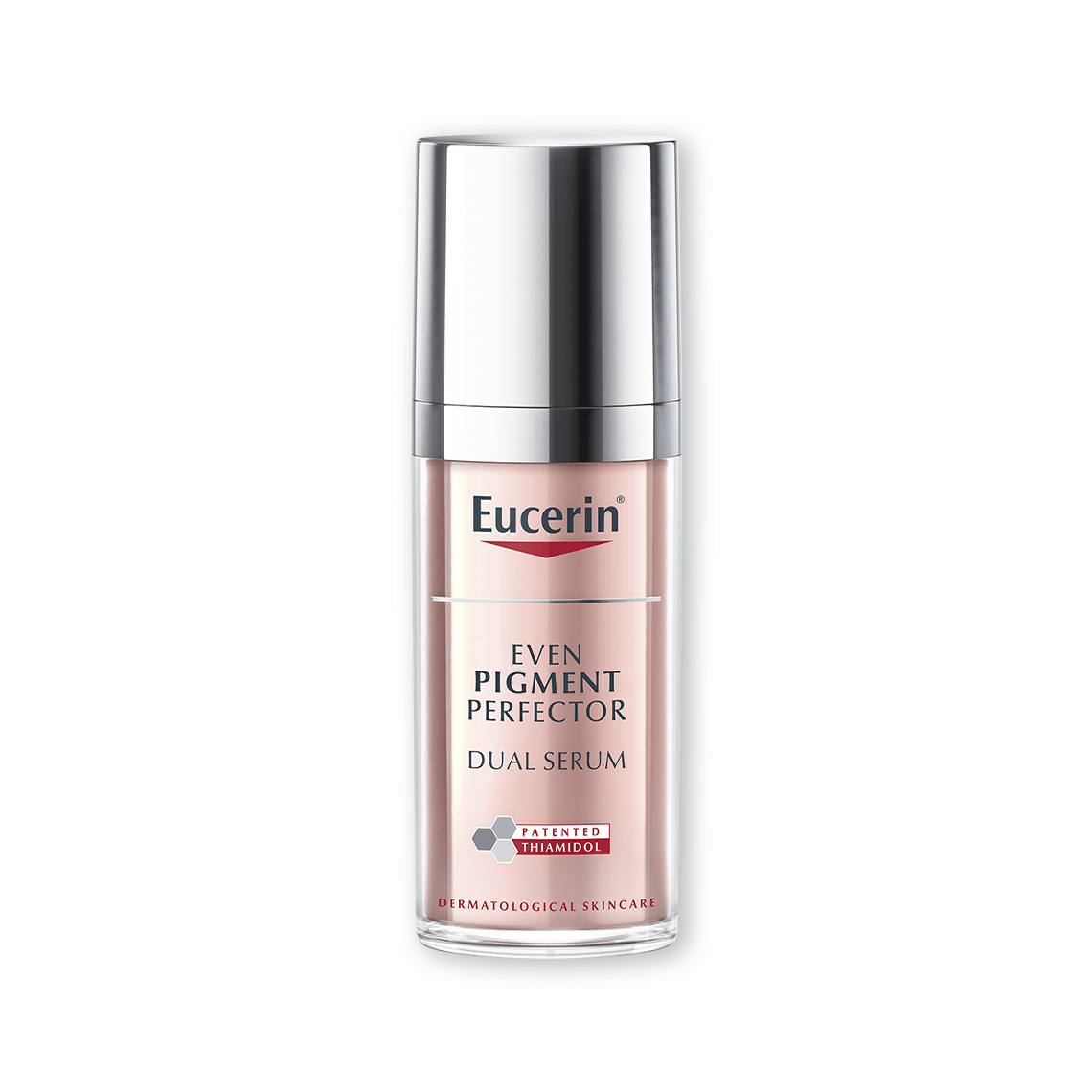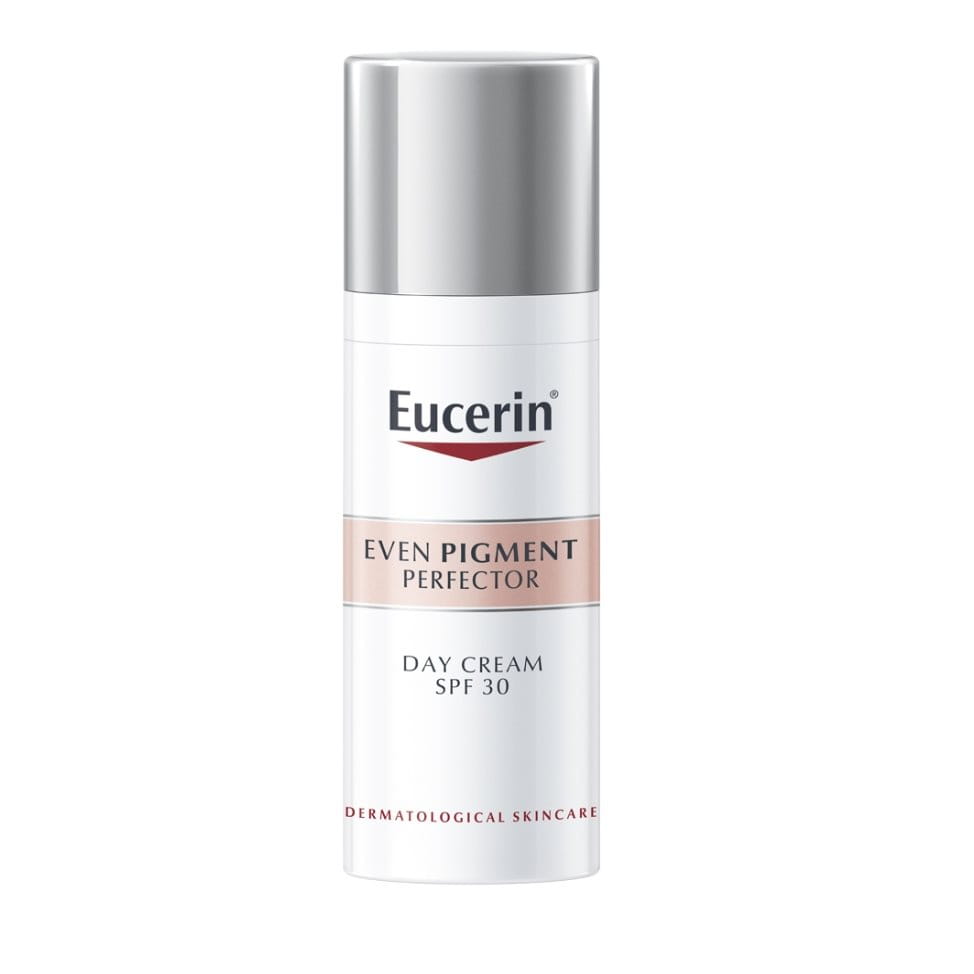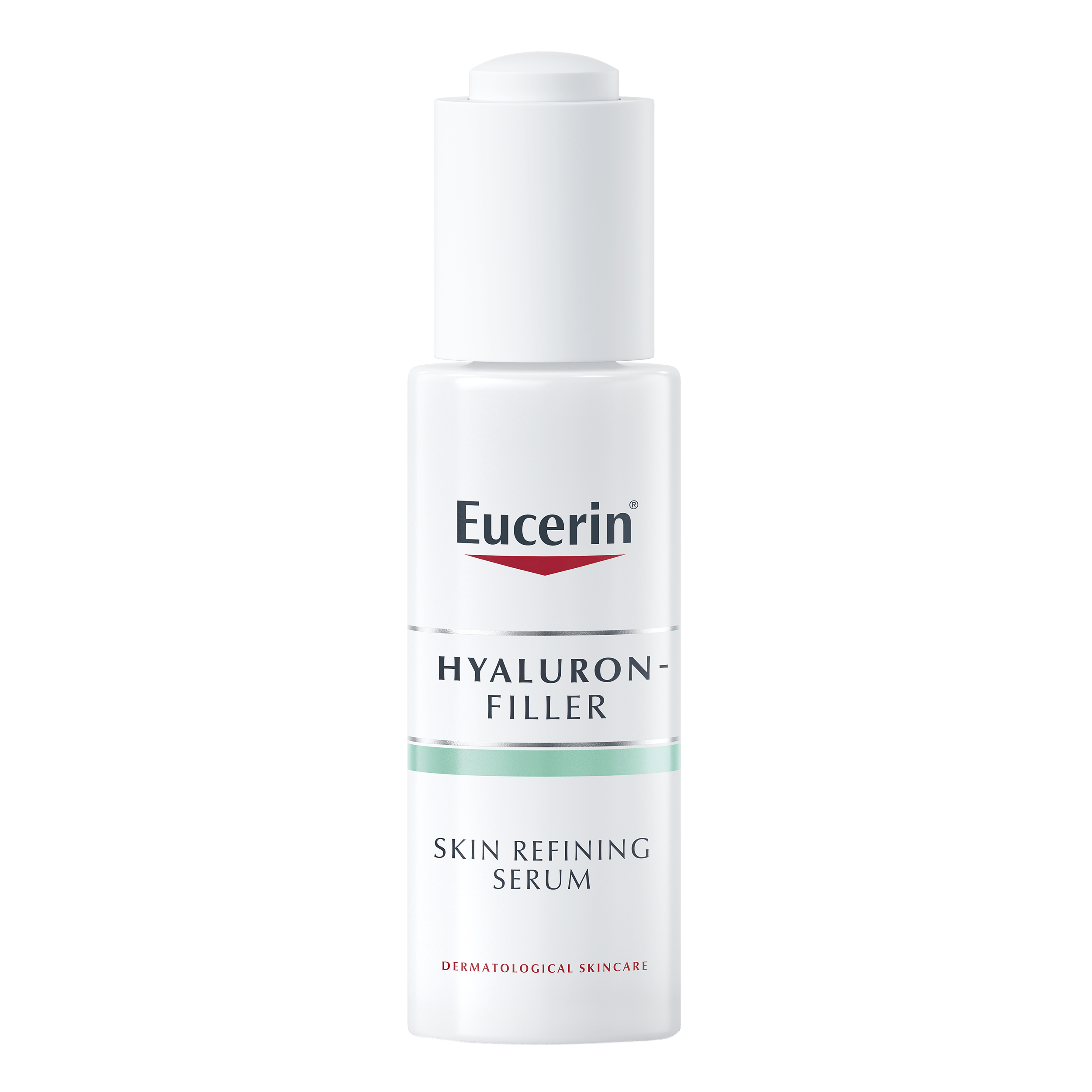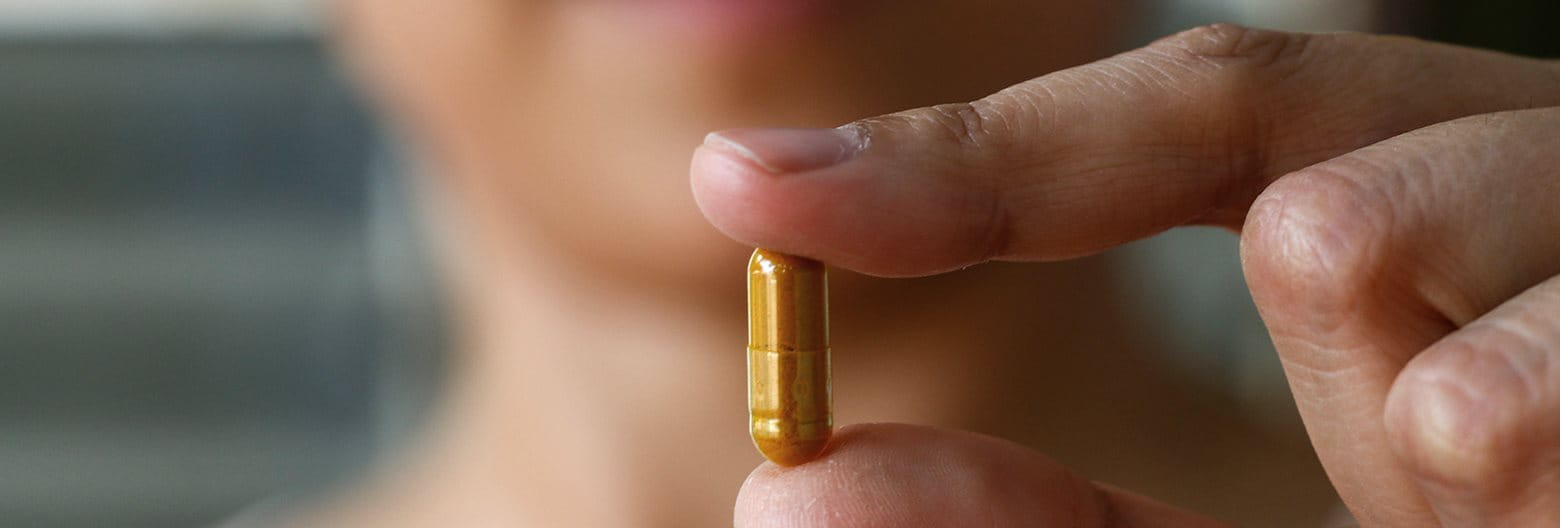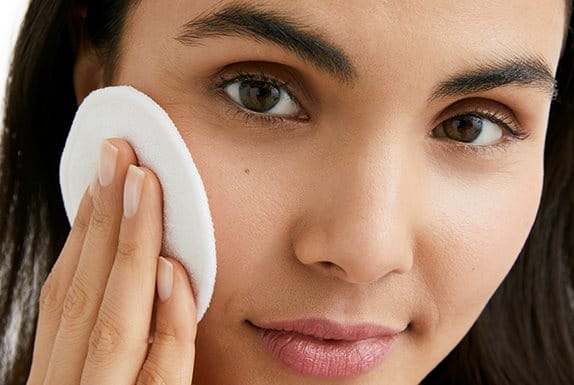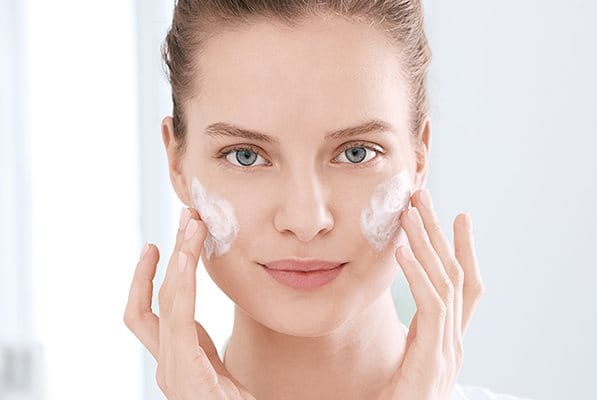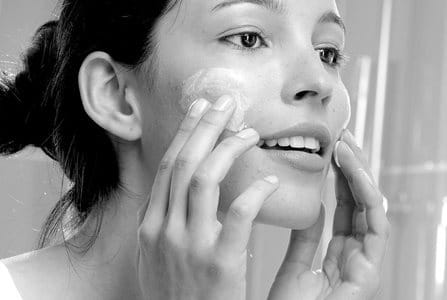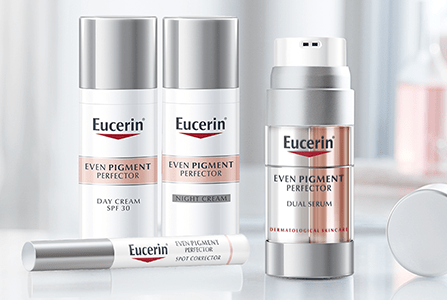For many acne sufferers, over-the-counter treatments are simply not effective enough. These people generally suffer from the more severe forms of acne, acne papulo-pustulosa or conglobata. The good news is that effective medicinal treatments are available on prescription, and the earlier the treatment is started, the lower the risk of lasting physical and emotional damage.
Signs & Symptoms
Understanding the four factors of acne and medicinal treatment options
Before deciding which treatment to use, it’s important to identify the symptoms that are causing concern. Treatments for mild to moderate acne tend to address one or more of the four issues attributed to the condition. They work by:
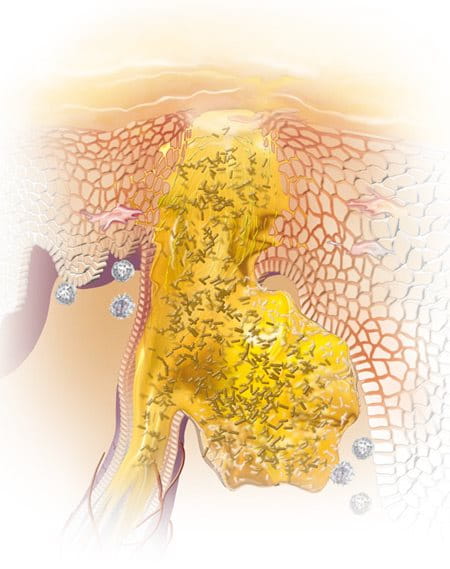
- reducing sebum production thereby controlling seborrhea.
- speeding up shedding of superficial skin cells (desquamation), and therefore helping to deal with hyperkeratosis.
- fighting bacterial infection caused by microbial colonisation.
- reducing inflammation and, in turn, calming down spots, papules and pustules.
What medical treatments exist?
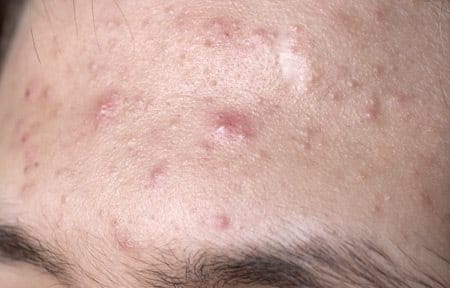
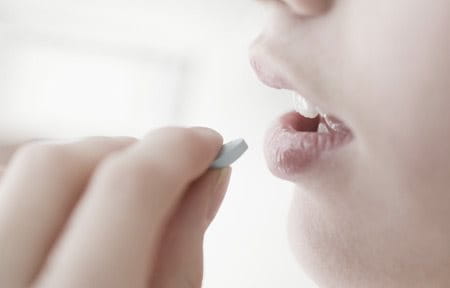
Effective medications that can be used to treat acne include:
- Topical retinoids
- Benzoyl Peroxide
- Topical antimicrobials
- Azelaic acid
- Oral antibiotics
- Oral isotretinoin
- Oral antiandrogens
These are used in isolation or combined, and the dermatologist will prescribe the appropriate medication depending on the severity of the symptoms.
Medical acne treatment follows a strict international standard to ensure that dermatologists and doctors are consistent in their treatment. This evidence-based guideline* gives medical practitioners information on which treatments, or combination of treatments, to use, depending on the severity of the acne and the individual symptoms. It offers alternatives to allow for different skin types and options, where appropriate, for females.
Certain oral prescription medications for acne should not be used during pregnancy, especially during the first trimester, so dermatologists and doctors can suggest alternatives.
It is worth noting that acne treatment, whether medicinal or non-medicinal, takes time to take effect.
The general rule is 4 to 8 weeks although it can take as long as three months, and symptoms may get worse before they get better. It is easy for patients to get disheartened and give up so it is important to persevere and keep any routines going, even if there is no immediate change for the better.
Side effects of acne medication
Medication can have some side effects. For example, dry skin or sensitivity to light. These symptoms can be counteracted with the use of adjunctive hydrating products for acne-prone skin such as Eucerin DermoPURIFYER Adjunctive Soothing Cream. It can be used with standard medical acne treatment to intensively hydrate and sooth exsiccated acne skin.
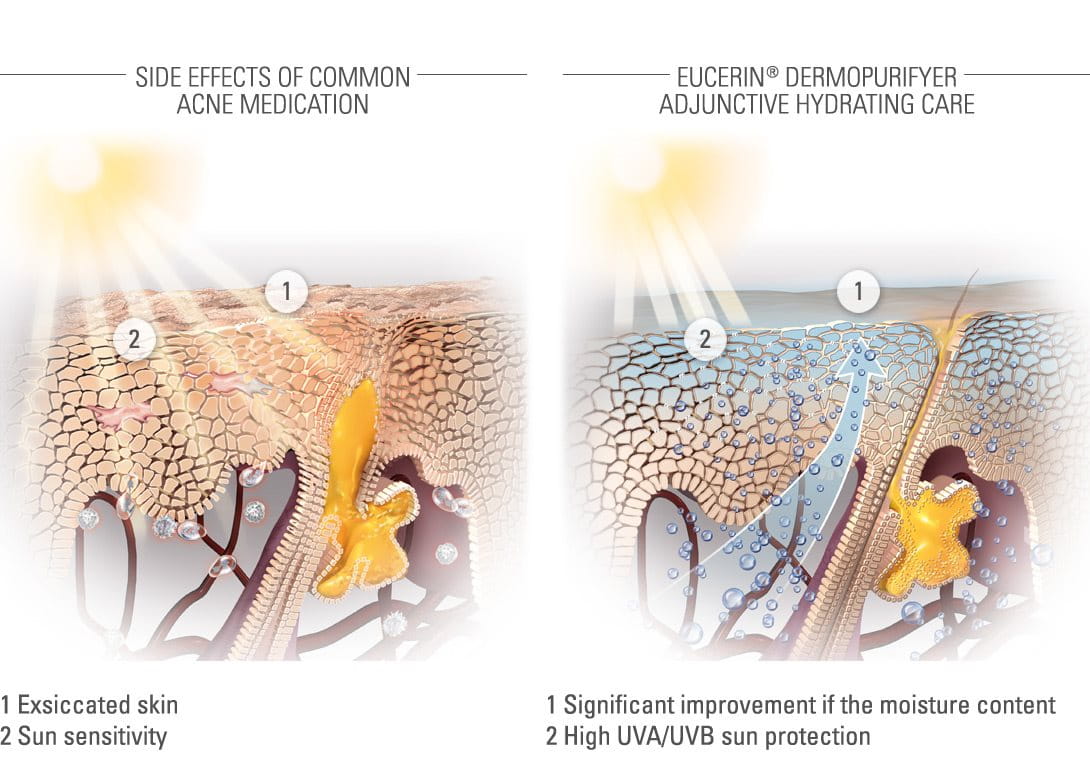
* Nast, A.; Dréno, B.; Degitz, K. et al. (2012), European Evidence-based (S3) Guidelines for the Treatment of Acne, Journal of the European Academy of Dermatology and Venereology, 26, p. 1–29.
Causes & Triggers
Major causes and triggers of acne
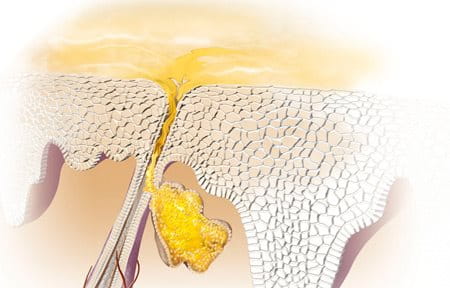
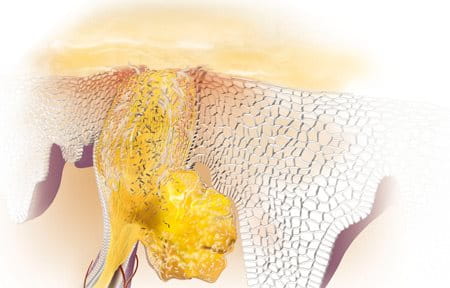
Hormones. Most cases of acne are triggered by a reaction of the sebaceous glands to androgen hormones. The sebaceous glands respond to the circulating hormones by producing excessive sebum.
The combination of excessive sebum (seborrhoea) and disturbed skin cell shedding results in the sebaceous glands getting enlarged and spots appearing. These can get colonised by certain bacteria and skin can get reddened and inflamed.
This process is most common in teenagers, as both boys and girls experience a surge of androgens during puberty. Up to 90% of teenagers get some form of acne although this usually clears up as they grow up.
It is possible for people of all ages to get acne. Up to 80% of the cases of adult acne occur in women who are going through hormonal changes.
This could be during pregnancy, menstruation or a hormone-related condition such as polycystic ovary syndrome.
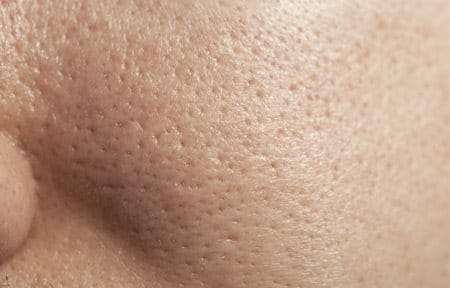
Bacteria. People with acne skin tend to have an oily, shiny complexion. This provides an ideal environment for the usually harmless acne bacteria (Propionibacterium acnes) to multiply and cause irritation and inflammation to the enlarged glands.
Genetics. Another theory on why some people are more prone to acne than others is to do with genetics. Whilst not a hereditary condition, there is some link between parents’ acne and the increased likelihood of their child or children being affected. Equally the children of adult acne sufferers are more likely to develop adult acne themselves.
Medication. Finally, it is thought that some medications, such as steroids and lithium, can trigger acne in people prone to the condition.
Myths of acne
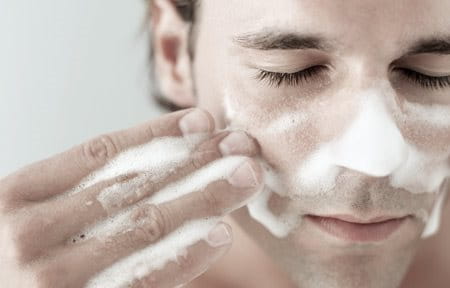
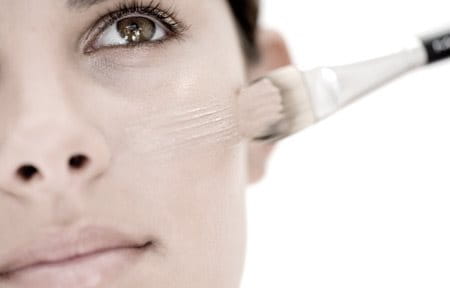
As well as the proven causes, there are many myths surrounding acne, many of which point unfair blame at the sufferer. For example, there is no truth that people with acne-prone skin are unhygienic.
In fact skin is more likely to be damaged by too much cleaning than it is by too little.
Neither is it true to say that a poor diet leads to acne. Of course a healthy diet is preferable to a bad one but greasy foods and chocolate have little effect on acne.
People with acne-prone skin don’t just have a physical condition to contend with, they can also be affected psychologically. The presence of spots and pustules on the face are difficult to hide so it is common for sufferers to lose self-confidence and self-esteem.
Equally, some of the strategies adopted to try and mask the condition, such as wearing heavy make-up or covering the face with hair, can actually make things worse and growing a beard can make the application of topical medications complicated.
The good news is that treatments do exist and the earlier the treatment, the lower the risk of lasting physical and emotional damage.
Read more about medicinal acne in general.
Read more about non-medicinal acne therapies.
Contributing Factors
The main contributing factors of acne
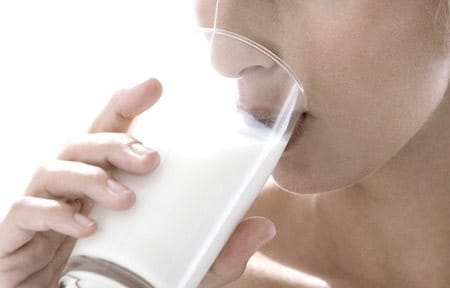
Symptoms vary from person to person and some people react differently to foods or the environment.
Some of the more common factors that have been known to aggravate acne-prone skin are:
- eating excessive short-chained carbohydrates (sugar and white flour)
- high intakes of milk and other dairy products (although cheese doesn’t appear to be a problem)
- smoking cigarettes
- comedogenic skin care products and make-up
Attention
It is important to seek dermatological advice, even if symptoms are mild or in their early stages as effective medical treatment can prevent the condition getting worse, and minimise the risk of scarring.
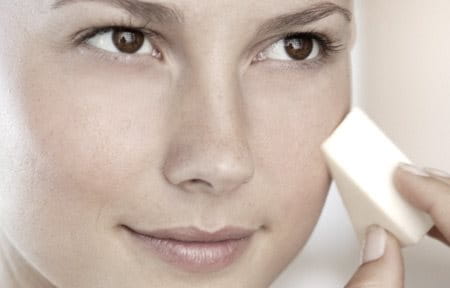
There are also a number of general rules that should be followed:
- using lukewarm water, not hot or cold
- only applying non-comedogenic skin care
- wearing make-up that doesn’t clog pores
- using an appropriate cleanser before bed to remove dirt and prepare skin for the reabsorption of medications
- leaving spots to heal naturally – picking them only makes them worse
Read more about non-medicinal acne therapies.
Solutions
Medical treatments for the symptoms of acne

Although there is no ‘cure’ for acne, symptoms can be treated using medicinal and non-medicinal therapies. Medical intervention tends to be advised for more severe forms of acne or when non-medicinal alternatives have been tried but not found to be effective.
The first treatment option for severe acne would be a topical gel, cream or lotion.
Medical treatments include:
- Topical retinoids such as Tretinoin and Adapalene. Topical retinoids act on abnormal keratinisation and are also anti-inflammatory so work for both comedonal and inflammatory acne.
- Benzoyl Peroxide helps prevent dead skin blocking up hair follicles and also kills the bacteria that causes infection.
- Topical antimicrobials (Topical antibiotics) help kill the bacteria on skin that can infect plugged hair follicles. This should always be combined with Benzoyl Peroxide in order to prevent the development of bacterial resistances.
- Azelaic acid is often used as an alternative treatment for ridding skin of dead skin cells and killing bacteria and is usually prescribed if patients experience side effects with Benzoyl Peroxide or topical retinoids.

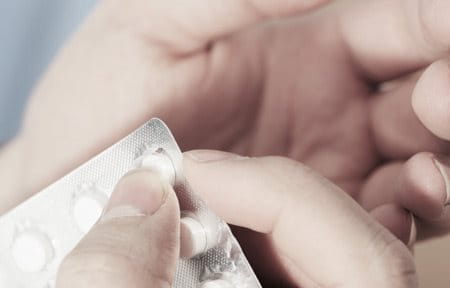
Topical treatments can be combined with antibiotic tablets (mostly tetracyclines or erythromycin).
If these don't work, a medication called Isotretinoin may be prescribed. Hormonal therapies can also be effective in women who have acne as oestrogen suppresses sebaceous gland activity and decreases the formation of ovarian and adrenal androgens.
As with all medication, there are known side effects to certain medicinal acne therapies. These may include skin dryness and sun sensitivity, but these can often be offset by the use of adjunctive hydration care for acne-prone skin such as Eucerin DermoPURIFYER Adjunctive Soothing Cream.
Read more about non-medicinal acne therapies
Read more about sun protection for acne-prone skin
Read more about the Eucerin DermoPURIFYER range
Our brand values

We deliver a holistic dermo-cosmetic approach to protect your skin, keep it healthy and radiant.

We work together with leading dermatologist and pharmacist partners around the world to create innovative and effective skincare products they can trust and recommend.

For over 100 years, we have dedicated ourselves to researching and innovating in the field of skin science. We believe in creating active ingredients and soothing formulas with high tolerability that work to help you live your life better each day.
